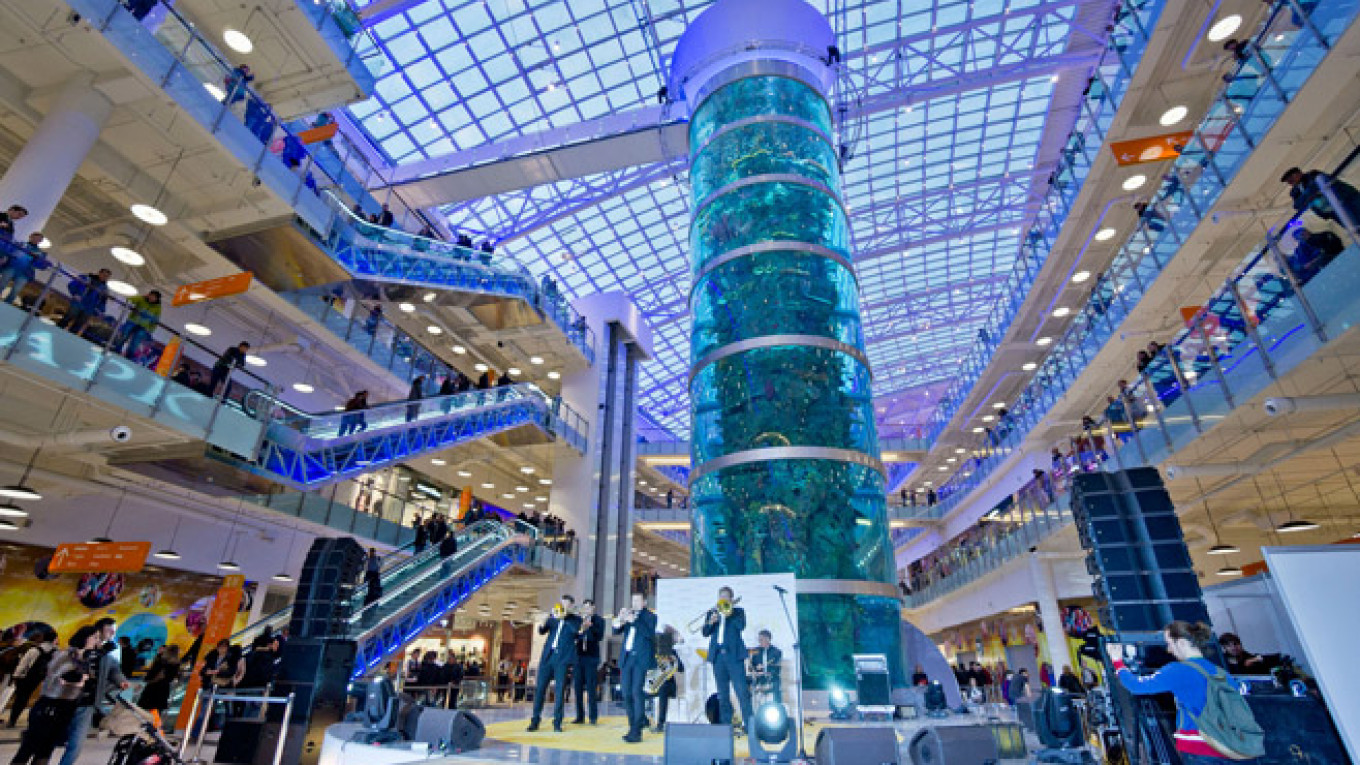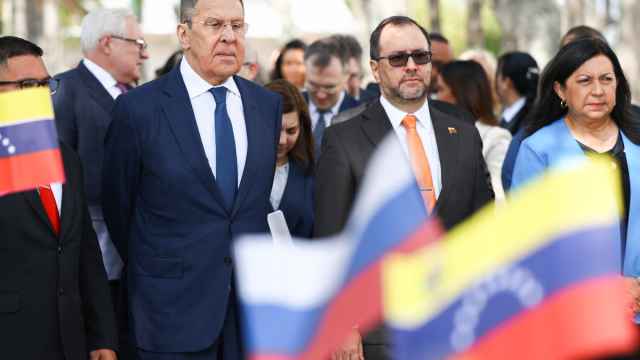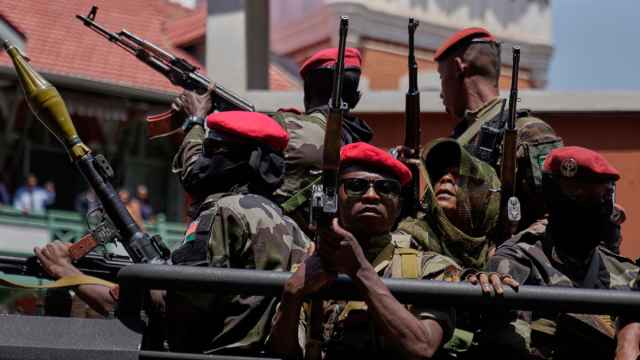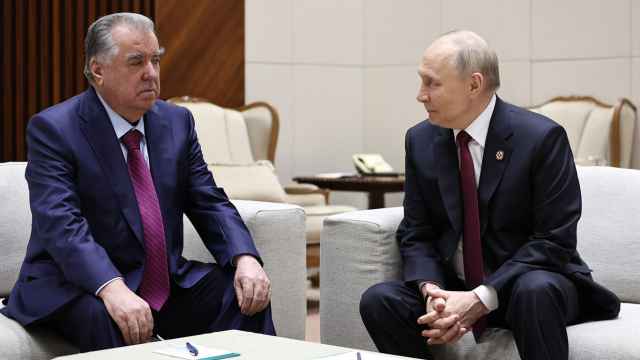Two days after Europe's largest shopping mall opened its doors in northwest Moscow at the height of economic woes and the ruble's free fall, there seemed to be more window-shopping than spending happening at Aviapark.
The new shopping center built near the site of a historic field known as Khodynskoye Pole is the size of 36 football fields, and has undoubtedly wowed Muscovites with its grandeur. But as the girth of Russians' wallets shrinks, shopping at Aviapark's range of over 500 stores and 80 restaurants — a number of which are still under construction— seems to be mostly a spectator sport.
A crowd gathered around the four-story cylindrical aquarium at the center of Aviapark on Sunday afternoon, posing for photos in front of the tropical fish and algae. Clowns walking on stilts, puppet shows and the performance of a brass ensemble enthralled young families. Other shoppers laced up their children's skates beside the top-floor's diminutive skating rink.
But the 230,000-square meters of stores and boutiques seemed to be a secondary destination.
"We came here because we live in the neighborhood," said Irina Yermakova, a mother of two. "The children also wanted to see the aquarium. I have to say we didn't really look at any of the stores."
A vast majority of the 43 people who boarded a free shuttle bus from Aviapark to the Dynamo metro station Sunday evening were empty-handed. Curiosity, rather than consumerism, seems to be behind Muscovites' expeditions to the giant mall.
The ruble, which stood at 50.32 against the dollar on Sunday, has lost one third of its value since the beginning of the year. Russians have seen their purchasing power of imported goods diminish accordingly: Last week, Apple increased the prices at its Russian stores up to 25 percent to adjust to the weakened ruble.
To add to Russian consumers' woes, inflation of more than 8 percent means price increases are also notable in grocery stores, even on domestic goods. From October to November, the price of hard flour increased more than 70 percent, the Interfax news agency cited a pasta producer CEO as saying last week.
Oksana, a shoe store manager who declined to divulge her last name, said that business had "not been bad" on the first weekend of Aviapark's activity.
"We are having lots of fun, we are in the middle of the action," she said, referring to her store's proximity to the aquarium. "Lots of people come into the store. Our prices are democratic, so I don't think the economic situation will be a problem for us."
One of Aviapark's two main investors is Igor Rotenberg, son of Arkady Rotenberg, the construction and banking magnate who was blacklisted by the U.S., EU, Canada and Norway over the crisis in Ukraine. Rotenberg Sr. was for a long time President Vladimir Putin's judo sparring partner.
The construction of Aviapark began two years ago, at a time when Russia's economic prospects looked far more rosy. In 2012, the economy was returning to pre-crisis peaks, GDP growth was steady if less than expected at 3.4 percent, and oil prices were at a four-year high.
Although the situation has changed, Aviapark's employees seem optimistic about the new facility's future.
"I don't know what it will look like on a week day, but there were definitely lots of people here this weekend," said Nurin Duisenbekov, a 26-year-old skating rink attendant.
"I'm just surprised there is no McDonald's here. That's probably because of the sanctions."
Contact the author at [email protected]
A Message from The Moscow Times:
Dear readers,
We are facing unprecedented challenges. Russia's Prosecutor General's Office has designated The Moscow Times as an "undesirable" organization, criminalizing our work and putting our staff at risk of prosecution. This follows our earlier unjust labeling as a "foreign agent."
These actions are direct attempts to silence independent journalism in Russia. The authorities claim our work "discredits the decisions of the Russian leadership." We see things differently: we strive to provide accurate, unbiased reporting on Russia.
We, the journalists of The Moscow Times, refuse to be silenced. But to continue our work, we need your help.
Your support, no matter how small, makes a world of difference. If you can, please support us monthly starting from just $2. It's quick to set up, and every contribution makes a significant impact.
By supporting The Moscow Times, you're defending open, independent journalism in the face of repression. Thank you for standing with us.
Remind me later.






